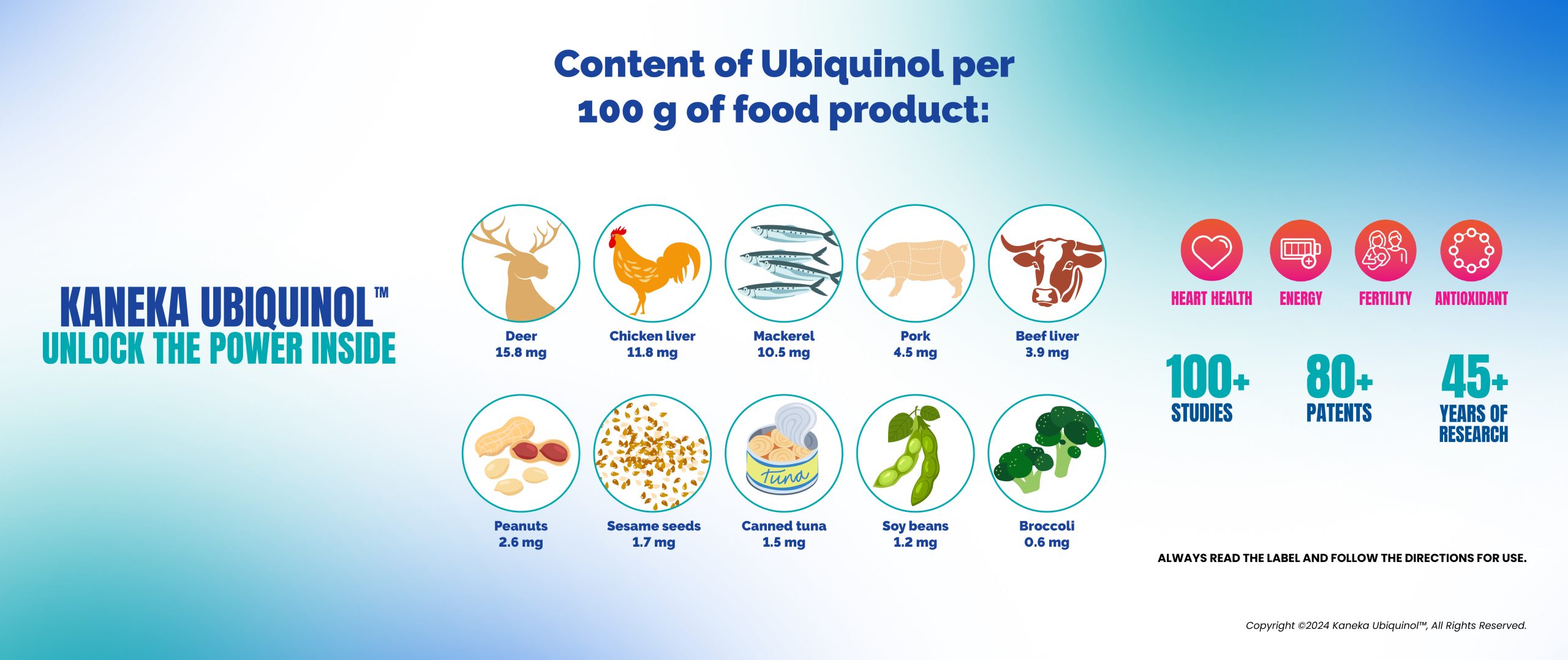Cholesterol, Heart Health and Ubiquinol
Nov 2018Recent Article

If you make, and keep, one New Year’s resolution, then vow to take care of your heart health next year. It can be frightening to realise that one out of every two women in Australia carry at least one risk factor for heart disease.[i] The good news is that it is possible to take positive steps to keeping your heart happy and healthy.
Rethink your diet.
Eating food rich in Omega-3 fatty acids has been proven to reduce the risk of heart disease. And if you suffer from inflammation, you’ll also benefit from an easing of sore joints.[ii]
Eat essential fatty acid rich foods such as salmon, walnuts and oils, including flaxseed and hemp. [iii] Try to also add turmeric to your cooking: one study conducted in Japan found that curcumin, the compound that gives turmeric its distinct yellow colour, significantly improved cardiac health over a three week period and reduced inflammatory lesions in the heart area. [iv] [v]
Supplement your diet.
As we age, our levels of Coenzyme Q10 (CoQ10), a naturally occurring antioxidant in your body, begin to decline. As CoQ10 is responsible for providing your cells with energy, it’s important to keep these levels steady.
Ubiquinol, the active (more easily absorbed) form of CoQ10, may play a role in providing your cells with energy. It hosts several benefits and has been shown to assist in maintaining healthy levels of LDL cholesterol to support a healthy heart. If you have a predisposition to heart disease, or you are one of the 2.8 million Australians taking statin medication for high LDL cholesterol levels, then speak to your doctor about Ubiquinol supplementation.
Reduce your stress.
It’s agreed that stress can trigger the release of adrenaline and cortisol, which short term may give you energy and motivation, but longer term can have an impact on your blood pressure and heart rate.
Whether it’s spending time with friends and family – which has been shown to lower the risk of heart disease,[vi] getting adequate sleep, eating a well-balanced, wholesome diet, and exercising at least 30 minutes every day,[vii] make sure you practice these benefits and try to make the space in your life for good heart health.
Speak to your healthcare practitioner to find out which supplement is right for you. Always read the label and use only as directed.
[i] https://www.aihw.gov.au/reports/men-women/women-heart-disease-cardiovascular-profile/contents/table-of-contents
[ii] https://www.heartfoundation.org.au/news/omega-3-fatty-acid-the-importance-of-fat-in-a-healthy-diet
[iii] https://www.heartfoundation.org.au/news/omega-3-fatty-acid-the-importance-of-fat-in-a-healthy-diet
[iv] https://nccih.nih.gov/health/turmeric/ataglance.htm
[v] https://www.ncbi.nlm.nih.gov/pubmed/23146777
[vi] https://jech.bmj.com/content/59/7/574
[vii] https://www.sciencedaily.com/releases/2008/01/080104123421.htm
You can share this by:
Keep up-to-date with Ubiquinol News
Ubiquinol Headlines
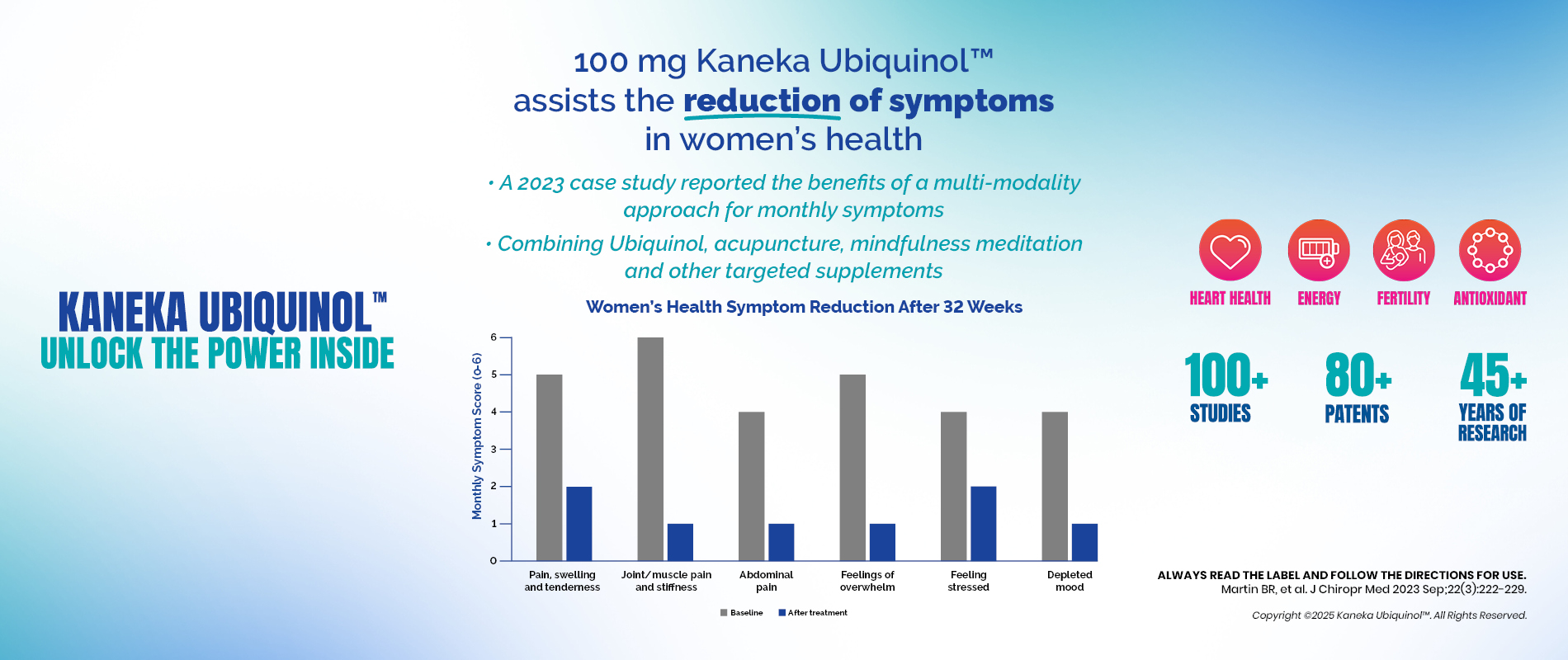
Ubiquinol for Women’s Health
Apr 2025Category: Ageing, Antioxidants, Fertility, Kaneka, Mitochondrial health, Ubiquinol, wellness, Women's HealthRead More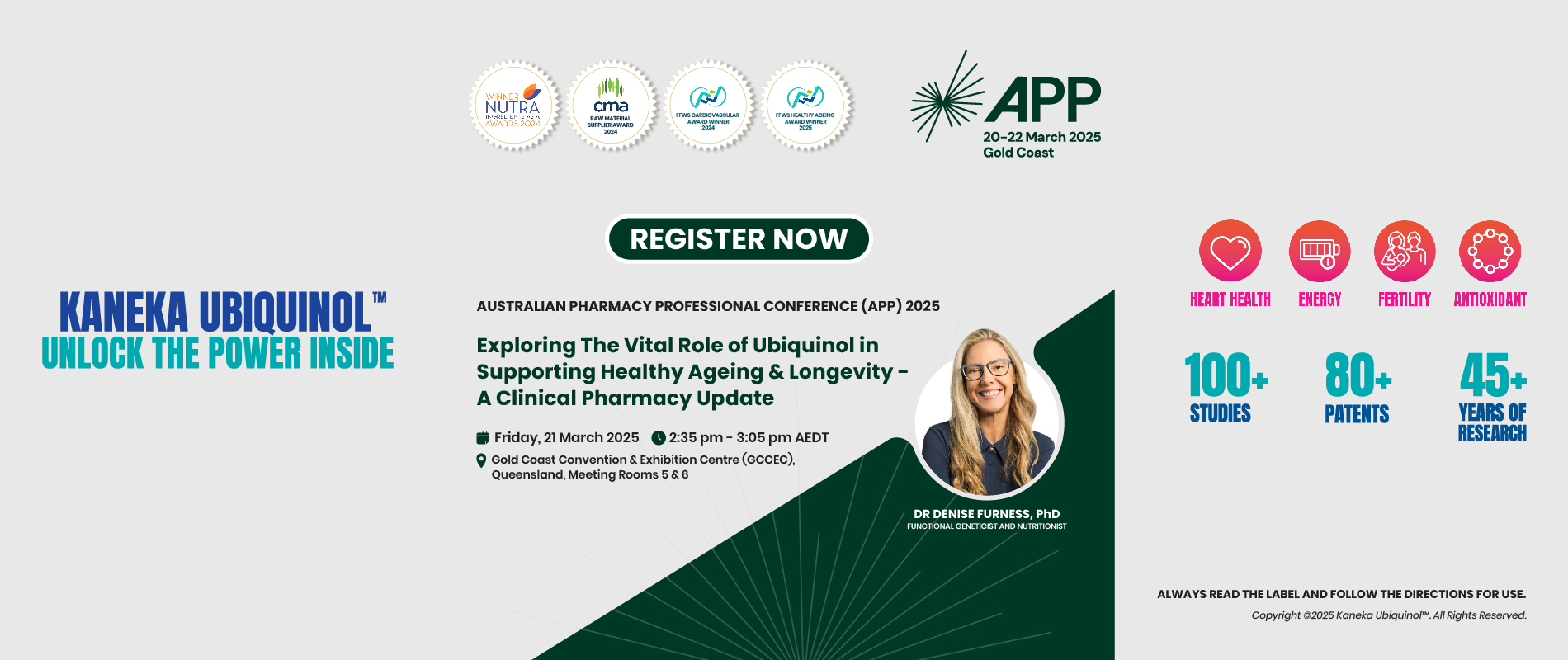
Kaneka Ubiquinol™ at APP 2025: Advancing Healthy Ageing & Longevity
Mar 2025Category: Ageing, Antioxidants, APP, Conference, Conferences, Energy, Fatigue, Health, Health Industry, healthy ageing, Kaneka, Mitochondrial health, Nutrition, UbiquinolRead More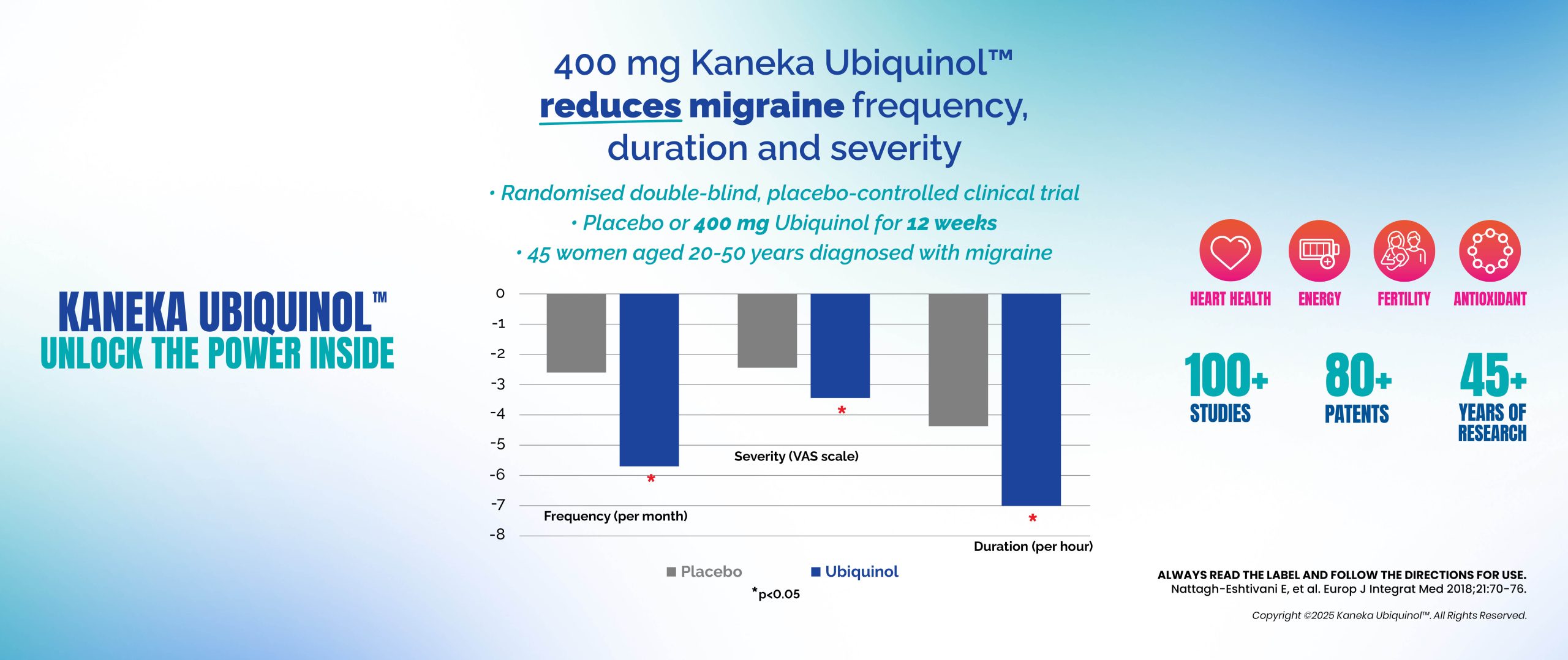
Ubiquinol: Supporting Migraine Relief Through Cellular Energy
Jan 2025Category: Antioxidants, complementary medicine, Energy, Fatigue, Health, Health Industry, healthy ageing, Kaneka, Mitochondrial health, Nutrition, Stress, Ubiquinol, Vitamins, wellnessRead More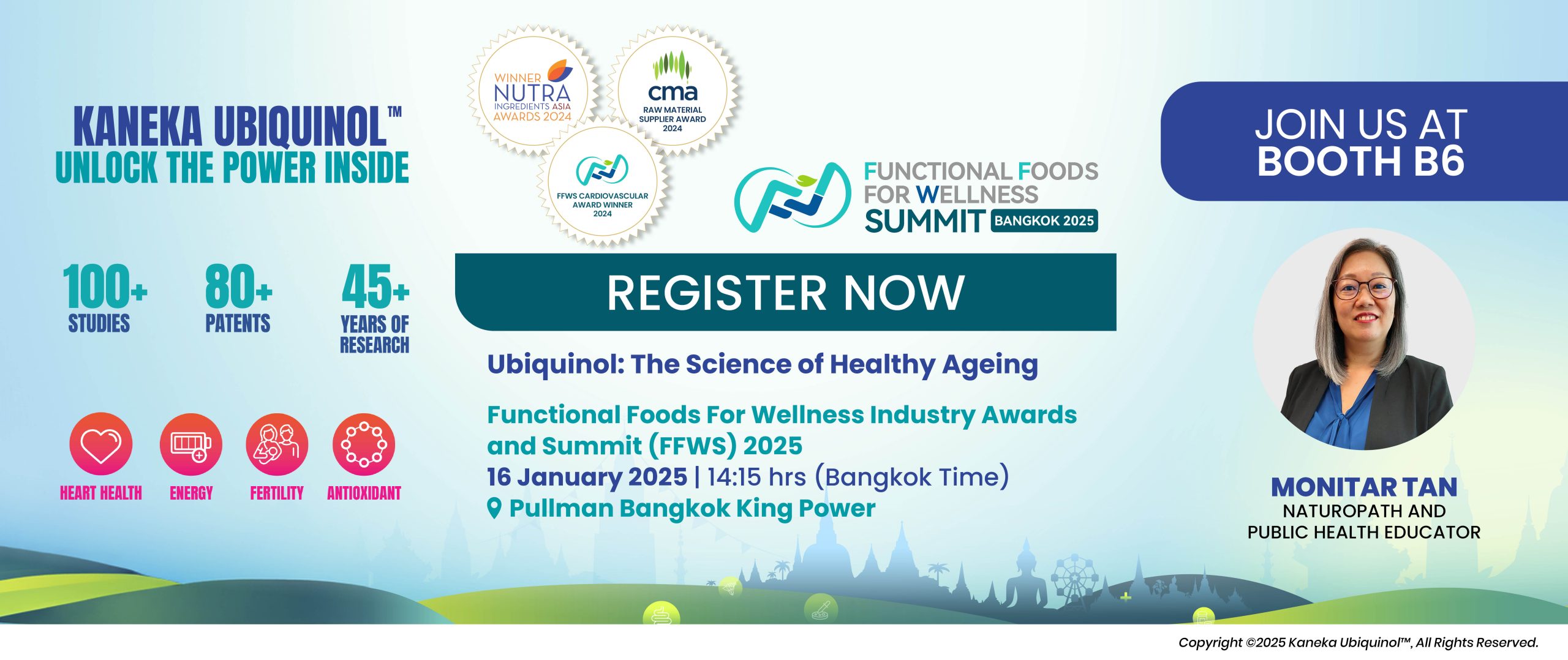
Kaneka Ubiquinol™ at Functional Foods for Wellness Industry Awards and Summit, #FFWS2025
Jan 2025Category: Ageing, Antioxidants, Awards, cardiovascular health, Conference, Conferences, Energy, Fatigue, FFWS2025, Health, Health Industry, healthy ageing, Kaneka, Menopause, Mitochondrial health, Nutrition, Ubiquinol, VitaminsRead More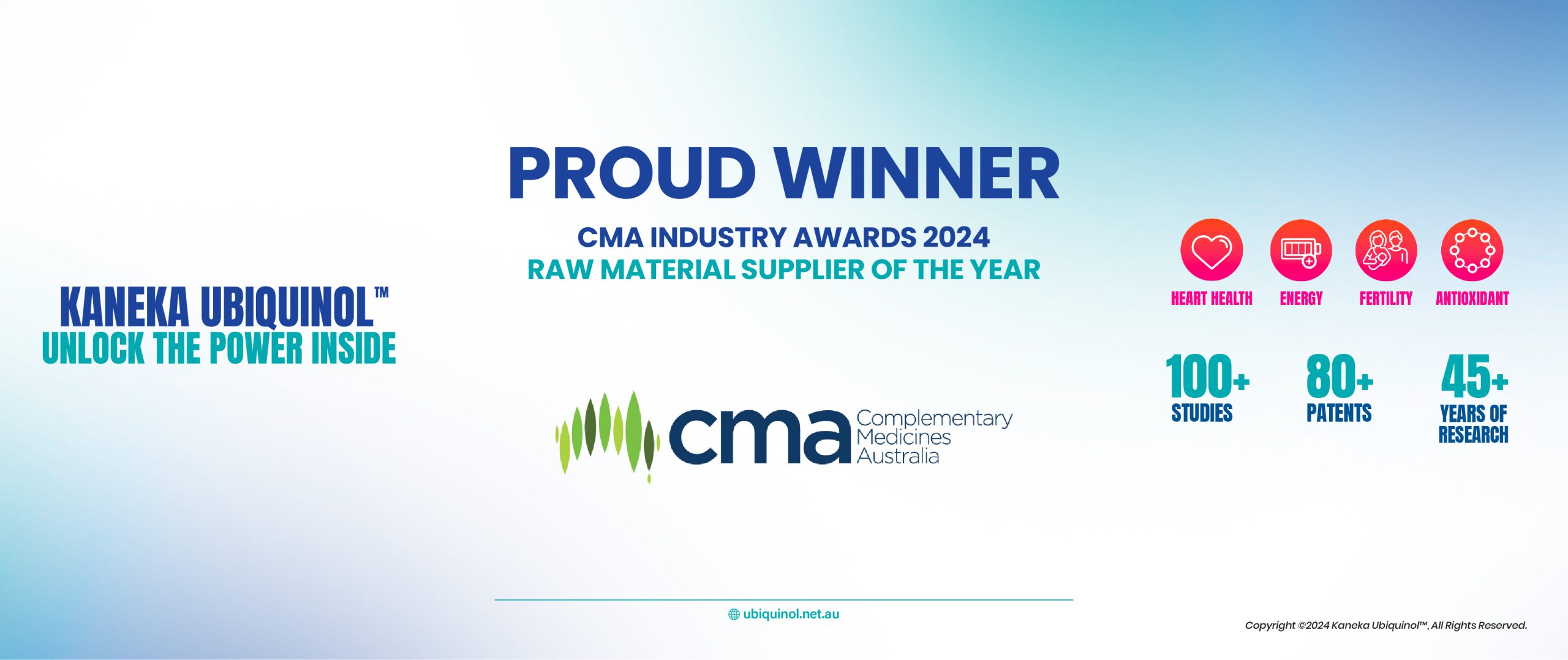
Kaneka Ubiquinol Wins Prestigious Complementary Medicines Raw Material Supplier of the Year Award 2024
Dec 2024Category: Ageing, Awards, cardiovascular health, complementary medicine, Conference, Conferences, Endurance, Energy, Fatigue, Fertility, Fitness, Health, Health Industry, healthy ageing, Heart, Immunity, In The News, Kaneka, Lungs, Memory, Mitochondrial health, Nutrition, Online, Stress, Ubiquinol, Vitamins, wellnessRead More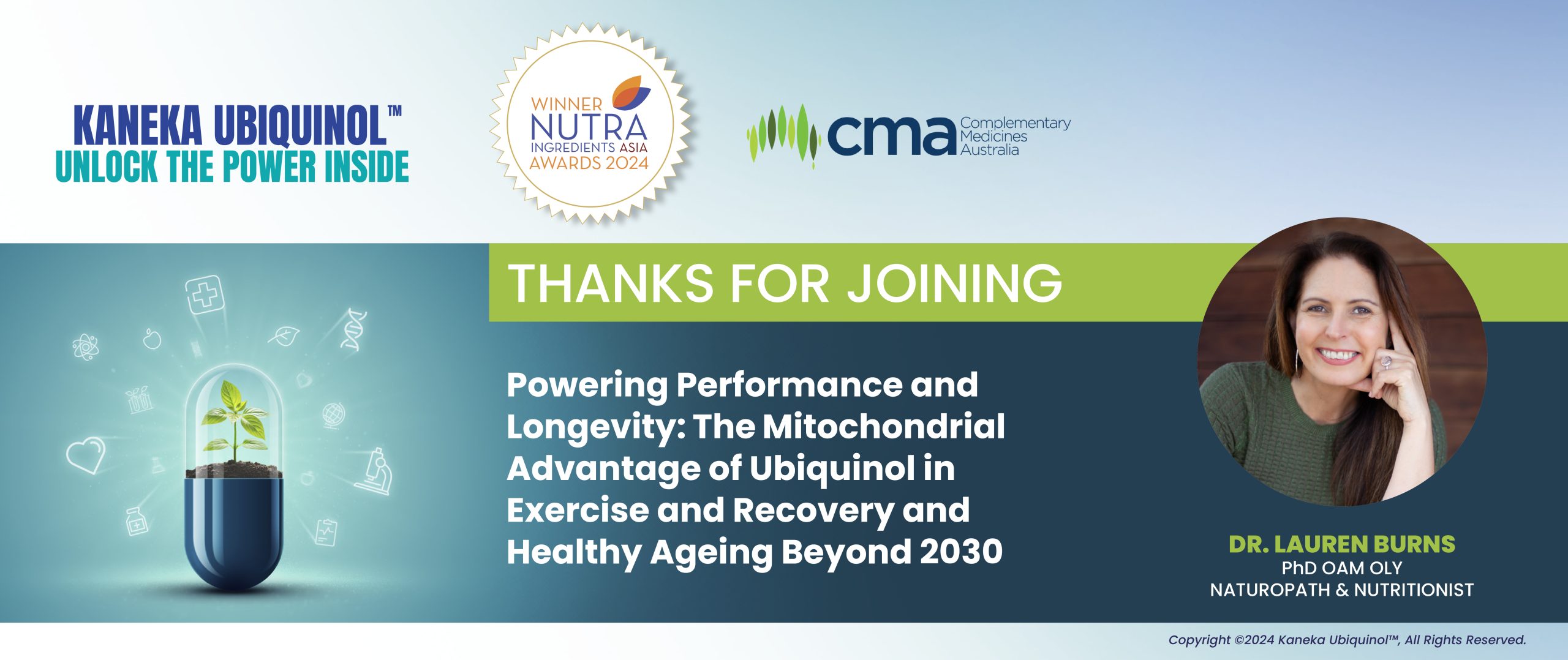
“Powering Performance and Longevity: Kaneka Ubiquinol™ at the CMA Annual Conference 2024”
Nov 2024Category: Ageing, Antioxidants, Awards, cardiovascular health, chronic fatigue syndrome, complementary medicine, Conference, Conferences, Endurance, Energy, Fatigue, Fertility, Fitness, Health, Health Industry, healthy ageing, Heart, In The News, Kaneka, Mitochondrial health, Online, Ubiquinol, VitaminsRead More
Natural Health Product Innovation Expo 2024
Nov 2024Category: Ageing, Antioxidants, cardiovascular health, Cholesterol, chronic fatigue syndrome, Conference, Conferences, Endurance, Energy, Fatigue, Fertility, Fitness, Health, Health Industry, healthy ageing, Heart, Kaneka, Menopause, Mitochondrial health, NHNZ, Nutrition, Stress, Ubiquinol, Vitamins, wellnessRead More